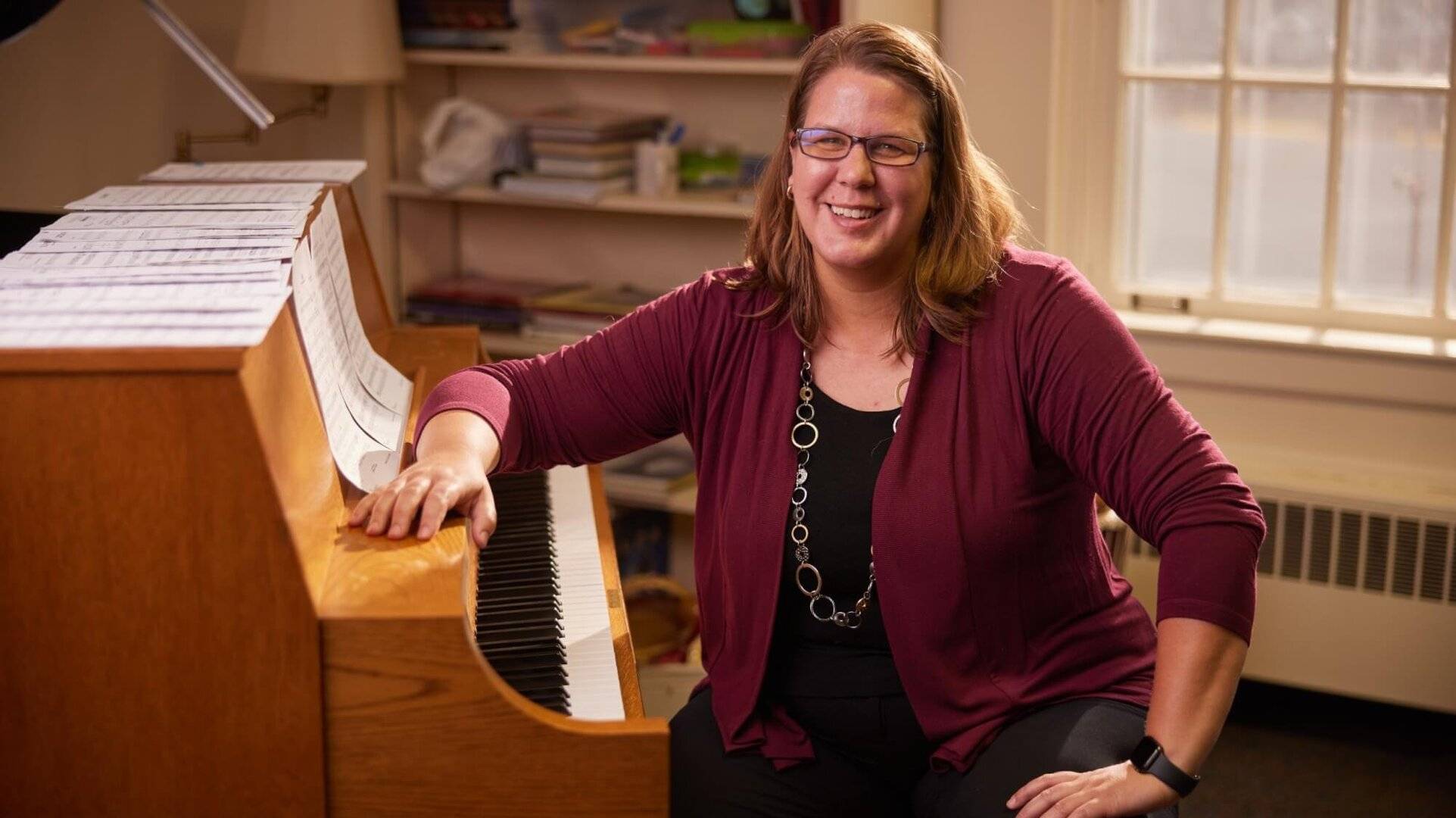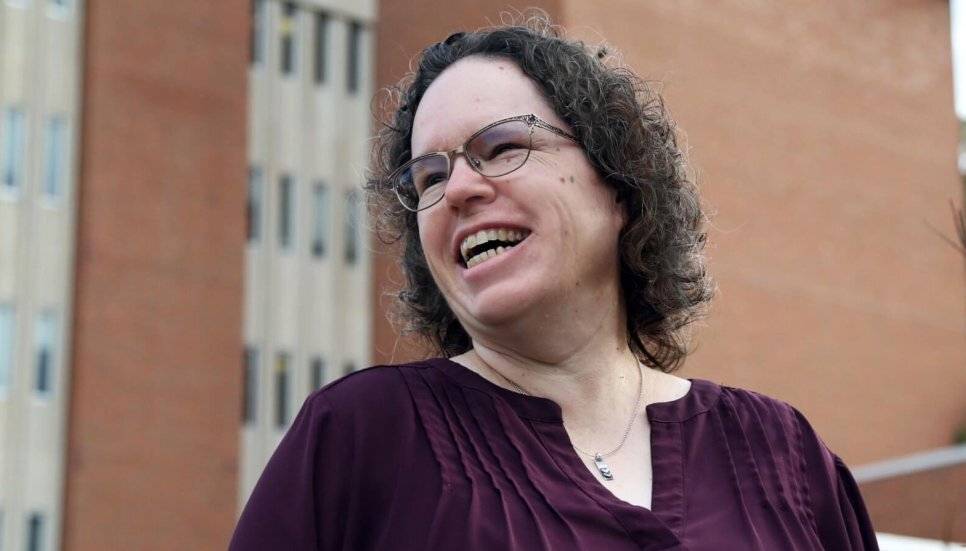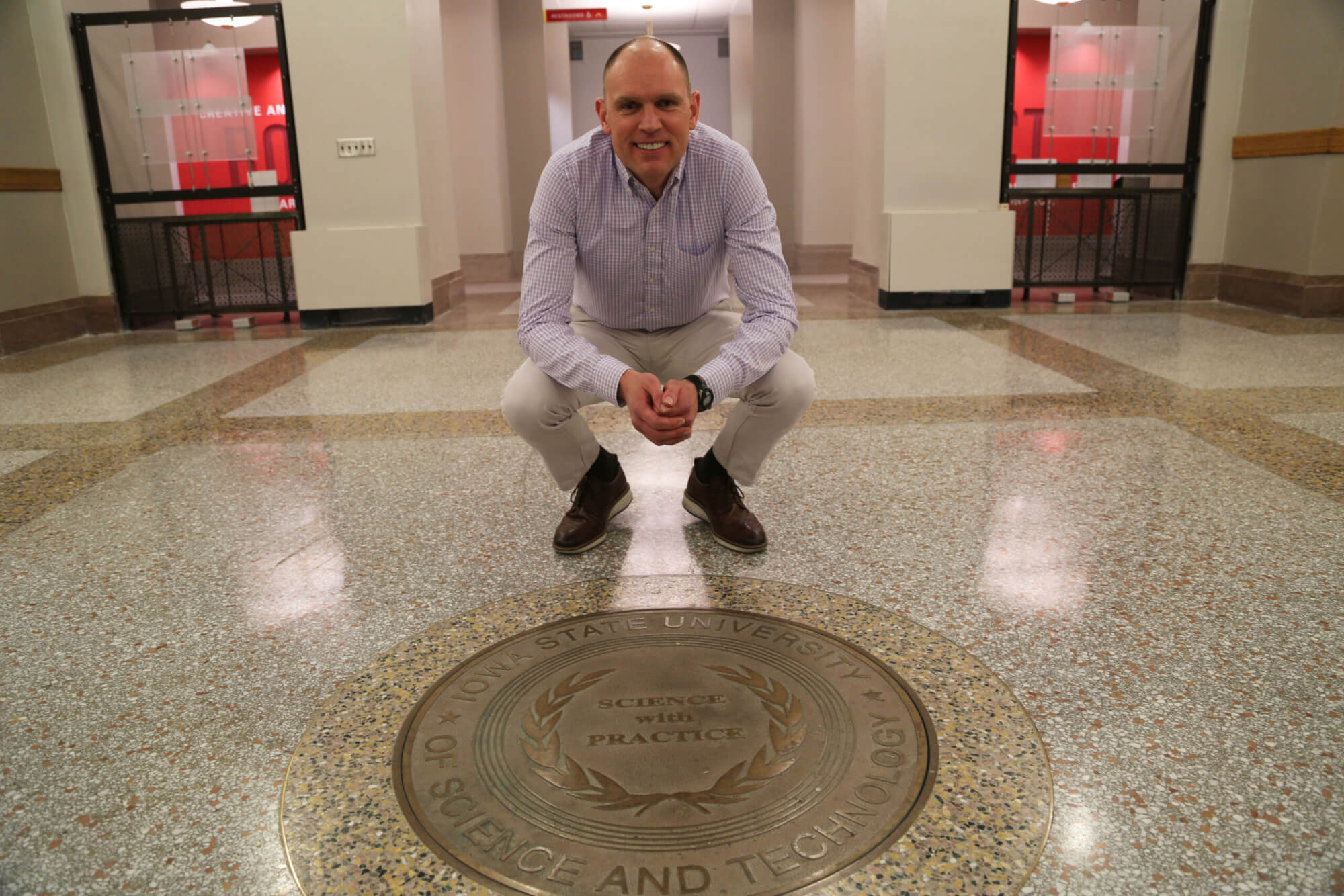Faces of Discovery

A Person-Centered Approach to Scientific Success
In our society, we are so heavily driven on drugs, pharmaceuticals, and finding a cure for everything. But we have 2 million people in the U.S. living with Parkinson’s disease right now, and researchers often forget about this. Who knows if there will ever be a cure. But if there is a way to slow it down, make patients’ quality of life better, and they can do that by just singing? That is a pretty big impact on its own.
Elizabeth Stegemoller, Associate Professor, Kinesiology

A historian who’s passionate about environmental history . . . and training AKC champions
Learning from the past and how people have adapted in this ecosystem . . . is invaluable in helping us adapt to the present time and the future.
Julie Courtwright, Associate Professor, History

From discarded data to agricultural insights
By measuring moisture levels across large areas with satellites, we can predict where crops might be struggling long before we see visible signs of drought damage. That means farmers can make better decisions about marketing, conservation, and planting strategies, and we can build better models to anticipate future climate challenges.
Brian Hornbuckle, Professor, Agronomy
